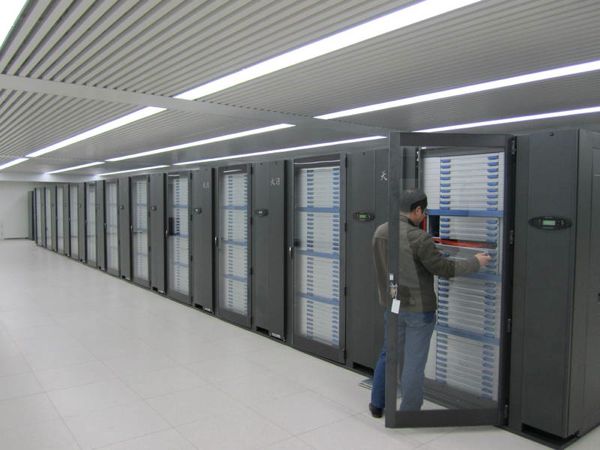

Intel has been denied an export licence, which it had sought in order to contribute tens of thousands of microprocessors to a Chinese government supercomputer upgrade project.
The move by the US Department of Commerce is a blow to Intel’s business, and highlights the escalation of tensions in recent years between the US and China.
The US said it is concerned about the nuclear research that it believes is being carried out using the supercomputer in question, the Tianhe-2 (pictured), which has topped the Top500 list of the world’s fastest supercomputers for the past 18 months.
The system, operated by China’s National Supercomputing Center of Guangzhou, uses 80,000 Xeon processors and has a computational capacity of more than 33 petaflops. This year the Chinese government had planned a series of upgrades to boost that capacity to greater than 110 petaflops, a move which would have depended upon acquiring the new Xeon chips.
Intel informed US authorities of its involvement in the plan last year and in August was told it would require an export licence. Then, in February, the US Department of Commerce placed four Chinese supercomputing institutions on a list that bans them from receiving certain exports.
In a notice in a government journal, the department said China’s National University of Defence Technology (NUDT), the National Supercomputing Center in Changsha (NSCC–CS), National Supercomputing Center in Guangzhou (NSCC–GZ), and the National Supercomputing Center in Tianjin (NSCC–TJ) were suspected in taking part in “activities that are contrary to the national security or foreign policy interests of the United States”.
The notice specified that the NUDT was involved in the production of the Tianhe-1A and Tianhe-2, which were “believed to be used in nuclear explosive activities”, in other words the design or development of nuclear weapons.
“Intel complied with the notification and applied for the licence, which was denied,” Intel said in a statement. “We are in compliance with the US law.”
The move is the latest escalation in the tensions between the US and China. In 2012, for instance, a US congressional committee said Chinese technology manufacturers Huawei and ZTE posed a national security threat because of their alleged ties to the Chinese government, denied by the companies.
China has also cracked down on the use of certain US technologies in the country as a security measure, making it more difficult for foreign companies to do business there.
Are you a security pro? Try our quiz!
Deliveries of Telsa's 'bulletproof' Cybertruck are reportedly on hold, amid user complaints side trims are…
New feature reportedly being developed by Apple for iOS 19, that will allow AirPods to…
Binance BNB token rises after WSJ report the Trump family is in talks to secure…
After failed Amazon deal, iRobot warns there is “substantial doubt about the Company's ability to…
Community Notes testing across Facebook, Instagram and Threads to begin next week in US, using…